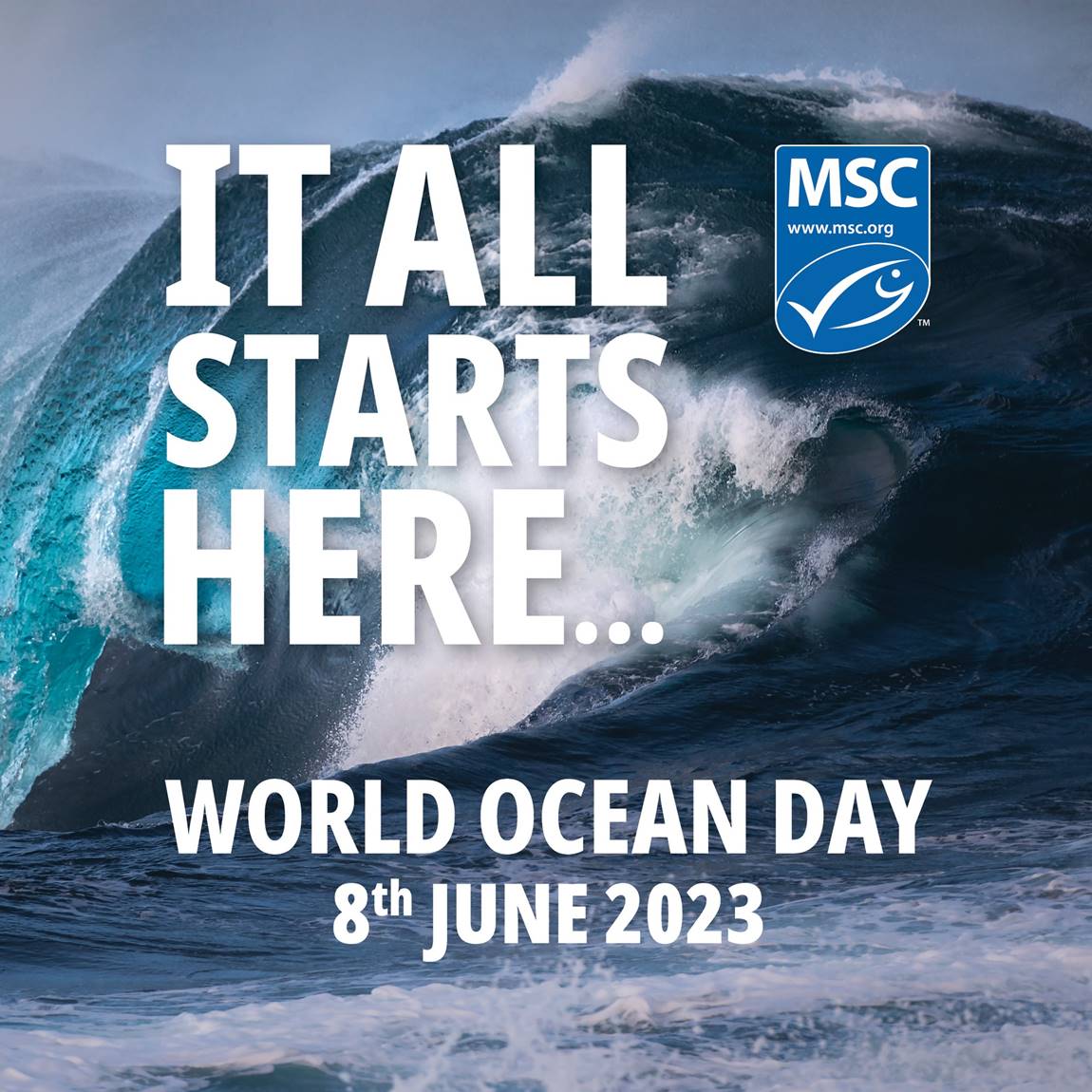Millions are missing out on vital nutrients due to overfishing!
New figures from the international not-for-profit, the Marine Stewardship Council (MSC), show that ending overfishing could provide nutrition for millions of additional people, helping to prevent serious and life-threatening health conditions.
Seafood is one of the most-nutrient rich foods, packed with vitamins, and already provides a fifth of the daily protein needs of over 3 billion people globally.
Latest estimates suggest if all global fisheries were managed sustainably, 16 million tonnes more seafood could be harvested every year. This additional catch together with the 96 million wild seafood catch currently projected for 2030 could prevent iron deficiencies in 4 million people and vitamin B12 deficiencies in 18 million people. This could help alleviate anaemia, a global public health problem that affects nearly half of young children under five and 40% of pregnant women globally.
The increased total catch could also help eliminate zinc and calcium deficiencies in more than two and a half million and 24 million people respectively while increasing vitamin A intakes for five million people. Deficiency in vitamin A alone is the leading cause of preventable blindness in children.
The not-for-profit’s analysis found that 38 million people missing out on healthy levels of essential Omega-3 fatty acids (DHA and EPA), which are mainly found in seafood, could also have their daily requirements met if the oceans are fished sustainably, helping to reduce deaths from heart disease and strokes.
To shed light on these facts and in celebration of World Oceans Day on 8 June, we embark on an extraordinary culinary adventure, exploring the vast and bountiful treasures hidden beneath the surface. We unvail ten incredible facts about the food that emerges from our oceanic ecosystems. From the wondrous diversity of marine delicacies to the surprising health benefits they offer, prepare to be amazed by the wonders that await us in the world’s most expansive pantry. So, grab your snorkel and get ready to whet your appetite for knowledge as we explore the fascinating world of food from our ocean!
1. ‘Super seafood’ is packed with nutrients
Seafood is full of important nutrients, such as zinc, iron, vitamins A and B12 as well as omega-3 fatty acids all essential for human health. Oily fish such as salmon and herring contain pound for pound more essential nutrients than nuts, grains, meat, leafy veg or seeds.
Research has shown that, when consumed in seafood, these nutrients are better absorbed and utilized by the body than nutrients from vegetables and food supplements.
2. Wild seafood is a planet-friendly option
Fishing has a lower environmental impact than land-based animal farming because it uses very little land or fresh water and doesn’t require feed or fertilisers.
3. Eating fish instead of meat can help to reduce carbon emissions
Eating wild caught seafood results in less than one tenth the amount of carbon dioxide associated with red meat. It also has a lower carbon footprint than cheese or chicken.
Certain seafoods, including small fish such as herring, mackerel and sprat have lower carbon emissions than rice and corn, while also being some of the most nutritious fish to eat.
4. There are thousands of different types of seafood to try
There are over 2,200 species of wild caught seafood and 600 farmed, yet most of us only regularly eat a small number of different fish. In South Africa, the 3 most popular types of seafood account for nearly three-quarters of all seafood consumption.
5. People have been eating fish for nearly 2 million years
The earliest definitive evidence of early humans eating aquatic animals dates back to 1.95 million years ago in Kenya. It was around this time that bigger-brained humans started to evolve.
5. Fish is the most globally traded food – more than sugar or coffee
Seafood is the most highly traded commodity in the global food system, with trade doubling in both quantity and value between 1998 – 2018.
The annual value of the international trade of seafood is USD$151 billion – worth more than five times the trade value of coffee and around US$30 billion more than sugar. This makes seafood essential to many national economies.
6. It’s not all about food – millions of people depend on fishing as a way of life
600 million people depend on seafood for employment. And it’s not just fishermen – more than half those working in the seafood sector are women. Fishing is also engrained in the culture of many coastal communities.
7. By fishing sustainably, we can actually catch more!
By taking care of the ocean and only fishing what it can provide, we can actually catch more fish. Ending overfishing could result increase global annual seafood production by 16 million tonnes – enough to meet the protein needs of an additional 72 million people per year.
9. Globally people are eating more fish
Global demand for seafood expected to double by 2050. To meet this increasing demand and feed a growing global population, governments must support and recognize fisheries that are managing the ocean sustainably.. We’re also likely to be eating more farmed fish.
10. By choosing to only eat sustainable seafood, you’re helping to make sure your kids and grandkids get to enjoy fish too
By buying seafood with the MSC blue label, or the green ASC label on farmed fish, you will be supporting responsible fishers helping to ensure an ocean full of life and delicious seafood for future generations to enjoy.
Thursday 8 June 2023 marks the UN’s 15th World Oceans Day, created as a way to celebrate our world’s shared ocean and our personal connection to the sea.
The MSC highlights the importance of wild caught seafood in sustaining a growing global population, to mark World Oceans Day. With a campaign tagline ‘Let’s make a deal with the ocean’, the MSC is challenging consumers to enter into a hypothetical contract with the Ocean:
- What would this collaboration agreement look like? What kind of commitment would we sign? The Ocean offers so much to human life on Earth. But asks us for a commitment in return. How will you be doing your part for the Ocean this World Ocean Day?
To learn more, access the MSC’s ocean sustainability educational resources, or to make your pledge this World Ocean Day, scan the QR code or visit www.msc.org/WorldOceanDay



